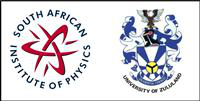Speaker
Apply to be<br> considered for a student <br> award (Yes / No)?
Yes
Level for award<br> (Hons, MSc, <br> PhD)?
PhD
Main supervisor (name and email)<br>and his / her institution
Prof. Francesco Petruccione petruccione@ukzn.ac.za University of KwaZulu-Natal
Abstract content <br> (Max 300 words)
Sunlight energy far exceeding human consumption is constantly incident on the Earth's surface. A class of organisms has perfected a method of harvesting this energy over a period of billions of years: this process is called photosynthesis. Understanding photosynthesis on a microscopic scale is necessary to engineer biologically-inspired artificial photosynthetic systems, which would allow us to utilise renewable sunlight energy with greater efficiency than is presently possible.
While vast scale separation has meant a traditional distinction between quantum mechanics and biology, recently evidence of quantum coherence in the primary stage of energy transfer in photosynthetic light-harvesting complexes at physiological temperatures [1,2] has raised the intriguing question of whether non-trivial quantum effects play a role in the efficiency of photosynthesis. While quantum effects in the subsequent stage of primary electron transport in photosynthesis were identified nearly 50 years ago [3], many aspects of this stage of the process are also not well-understood microscopically.
We give a brief overview of the success and shortcomings of existing models of the primary stages of energy and charge transfer in photosynthesis, and discuss the open quantum systems models that we have proposed [4,5] in the context of a selection of open questions about the processes.
[1] Panitchayangkoon G et al 2010 Proc. Natl. Acad. Sci. USA 107 12766
[2] Collini E et al 2010 Nature 463 08811
[3] Devault and Chance 1966 Biophys. J. 6 825
[4] Sinayskiy et al 2012 Phys. Rev. Lett. 108 020602
[5] Marais et al 2013 New J. Phys 15 013038
Would you like to <br> submit a short paper <br> for the Conference <br> Proceedings (Yes / No)?
Yes

